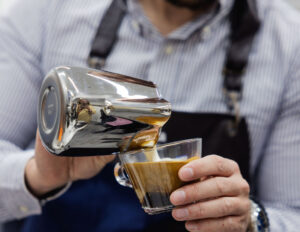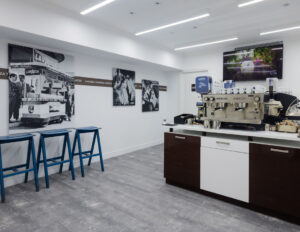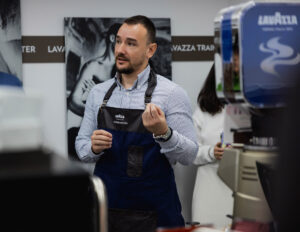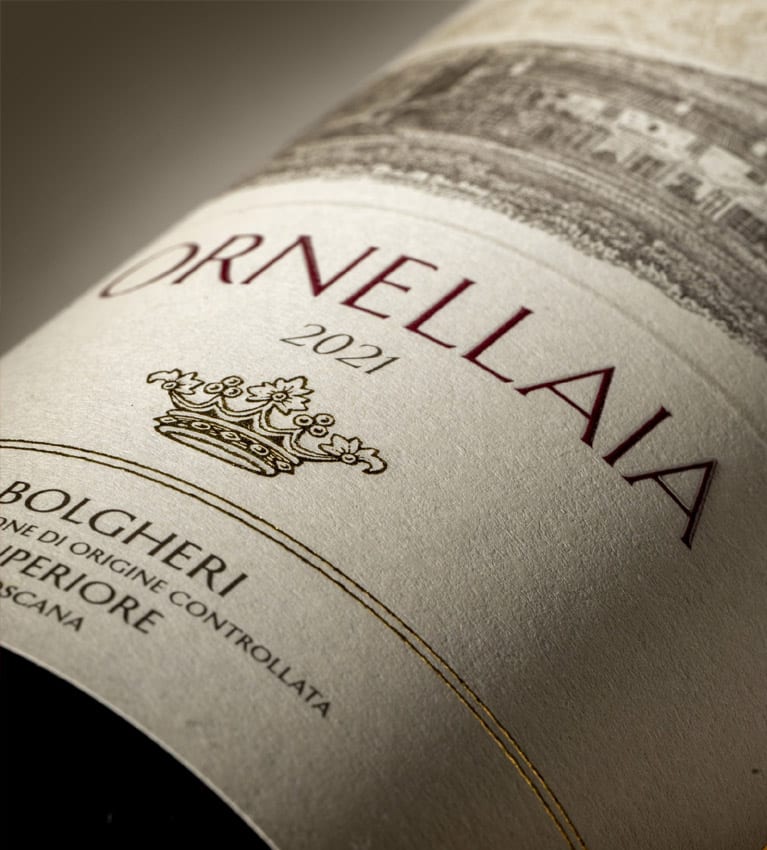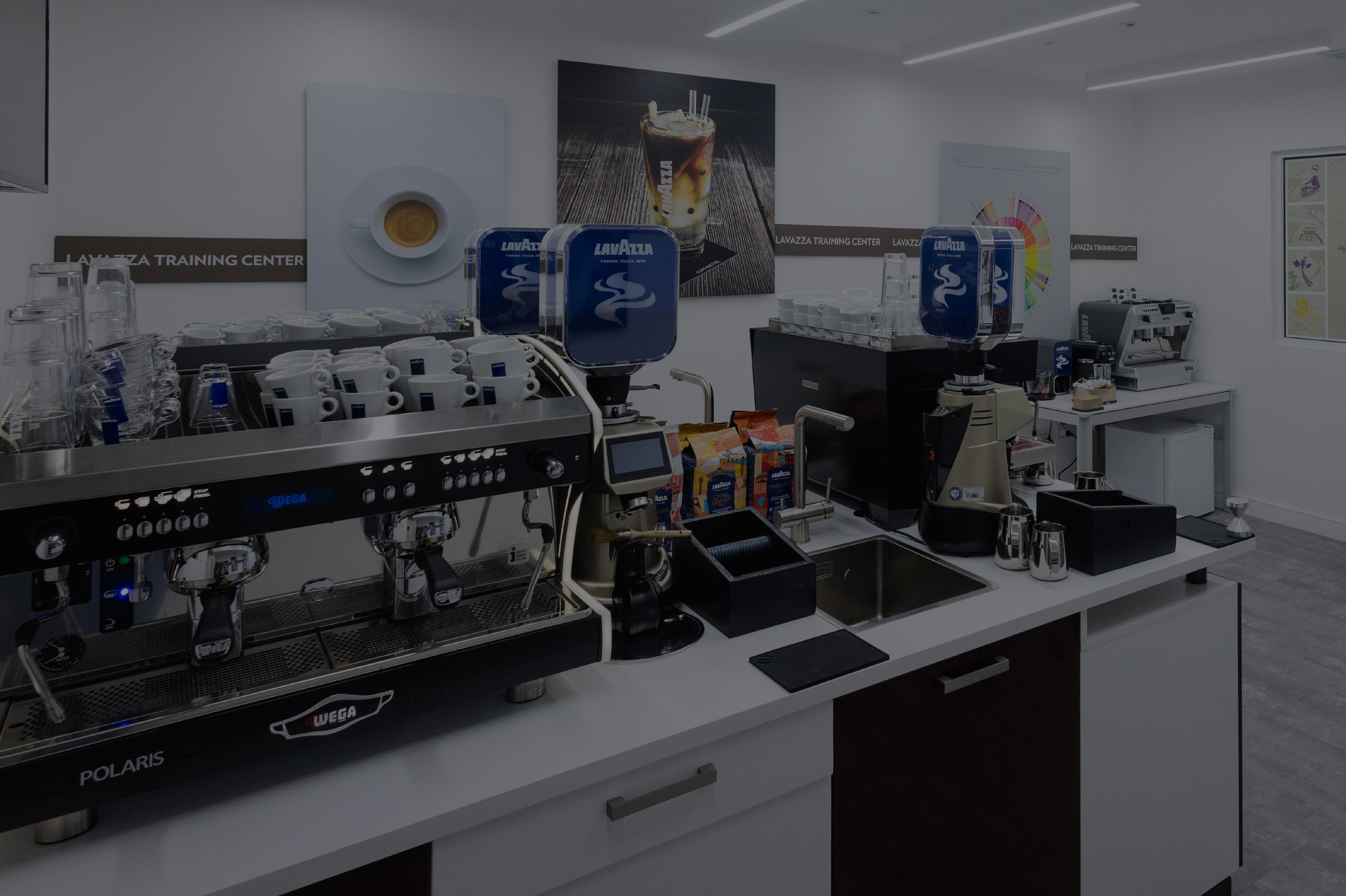
Lavazza Training Centre Opens in San Gwann
May 25, 2025

The Definitive(ly) Good Guide to Restaurants in Malta & Gozo: A 25-Year Journey
May 25, 2025
The Skill of Serving Wine
May 25, 2025Jo Muscat learns all about the journey leading to Lavazza’s cups of excellence.
Someone, somewhere, right now, is having a Lavazza coffee. If they are lucky, it will be an authentic Italian espresso that has been expertly brewed by a Lavazza-trained barista in one of the 57 Lavazza Training Centres worldwide. Established in Turin in 1989 “to share the art of espresso-making with industry professionals and coffee enthusiasts”, this coffee school is now the largest international training network in this field, training 32,000 people last year alone.
Now, P. Cutajar & Co. Ltd, - who have recently officially inaugurated a newly-refurbished Lavazza Training Centre in San Gwann - this number will include baristas, restaurant staff and coffee enthusiasts in Malta. These will all be trained under the guidance of Robert Duša, in- house barista trainer.
The event saw two very special guests from Lavazza Italy, Riccardo Codognola and Lordana Bertinetti, share insights about the innovative training programs and unique experiences that the Lavazza Training Centre will be offering to coffee enthusiasts and professionals alike.
P. Cutajar & Co. Ltd’s connection with the Lavazza brand goes back 38 years when Lavazza coffee was added to the company’s distribution portfolio. The company estimates that at least 20 million cups of Lavazza coffee were sold in Malta last year, 7 million of which were served in bars, restaurants and hotels.
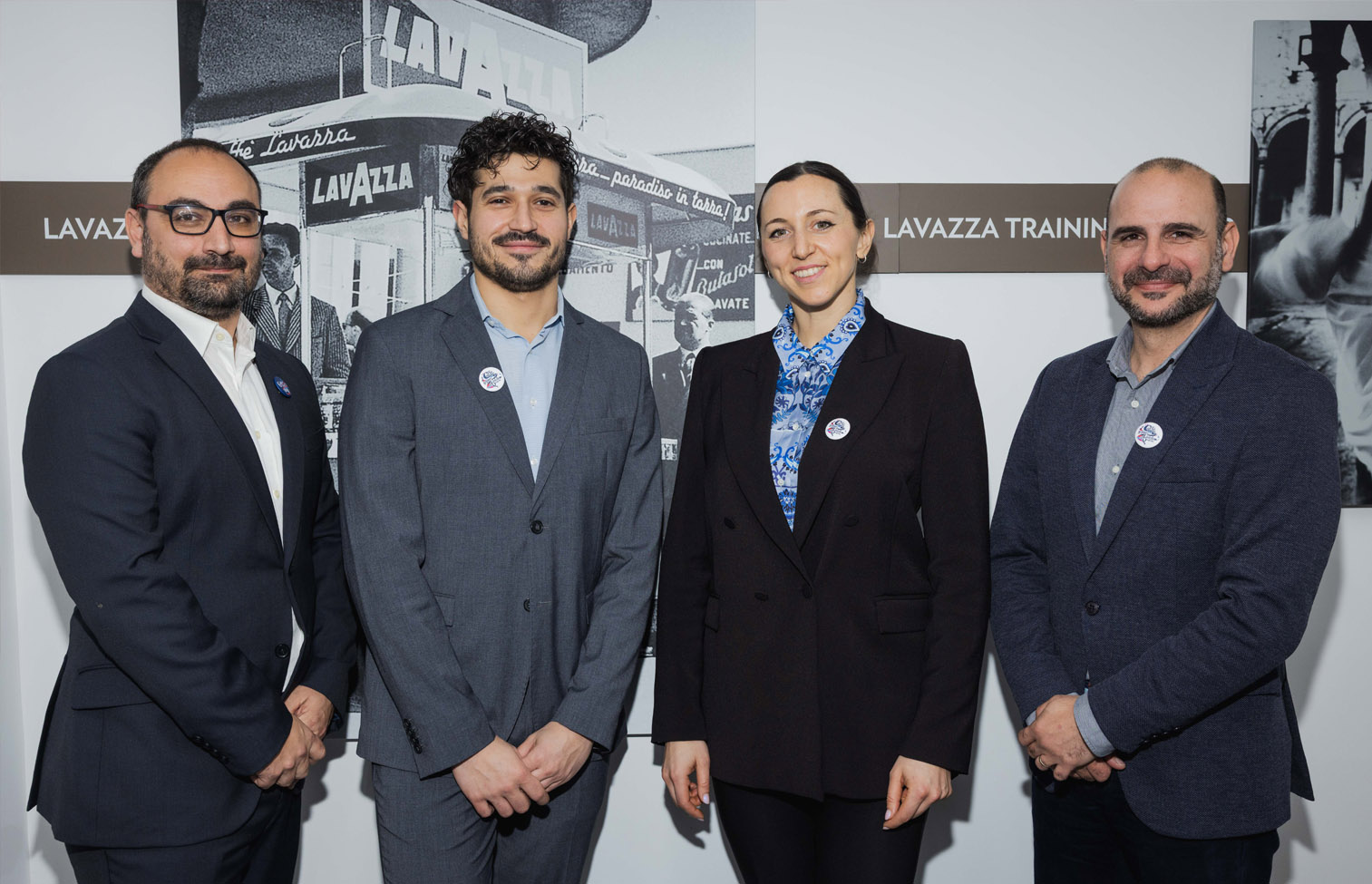
From Left: Christian Caruana (Manger- Coffee and Non-Food Division), Riccardo Codognola (Regional Sales Manager Mediterranean Region), Loredana Bertinetti (Country Sales Manager) and Matthew Cuomo (CCO)
During the inauguration event guests learned how the
Lavazza coffee we enjoy today is the result of decades of
research that have gone into the mixing of coffee beans
of different origins, to obtain blends that satisfy changing
tastes. It was Luigi Lavazza who first invented the
concept of the blend.
He opened his first artisanal coffee roastery in 1895 in Turin and started creating blends for consumption, thus revolutionising the history of coffee. The Lavazza brand has since become recognised in the world as a symbol of Italian coffee, known not only for its passion for quality, but also for its constant innovation. For Lavazza drinkers, coffee is more than a beverage; it's an immersive cultural experience.
The training centre in Turin sets the standards that all other centres worldwide are bound to uphold. That includes the Lavazza Training Centre in Malta, which will serve as a learning hub for both aspiring baristas who wish to add the art and skill of making a good coffee to their resume and experienced baristas looking to enhance their craftsmanship and deepen their knowledge of coffee.
In the near future, the centre will also be open to coffee enthusiasts who wish to learn how to prepare an authentic Italian coffee at home, how to care for their coffee machine and, not least, how to wow their guests with their coffee art.
The training centres also serve as creative hubs for innovative taste combinations and flavours. Since 2020, the Lavazza team has also been looking at new ways to integrate coffee in food, coming up with such delicacies as coffee popcorn, salted coffee crumble, coffee puff pastry and coffee meringues … the combinations of food and flavours are endless!
The Lavazza Training Centre offers an opportunity to all who want to immerse themselves into the world of coffee to learn and unleash their own creativity, guided by Lavazza experts.
He opened his first artisanal coffee roastery in 1895 in Turin and started creating blends for consumption, thus revolutionising the history of coffee. The Lavazza brand has since become recognised in the world as a symbol of Italian coffee, known not only for its passion for quality, but also for its constant innovation. For Lavazza drinkers, coffee is more than a beverage; it's an immersive cultural experience.
The training centre in Turin sets the standards that all other centres worldwide are bound to uphold. That includes the Lavazza Training Centre in Malta, which will serve as a learning hub for both aspiring baristas who wish to add the art and skill of making a good coffee to their resume and experienced baristas looking to enhance their craftsmanship and deepen their knowledge of coffee.
In the near future, the centre will also be open to coffee enthusiasts who wish to learn how to prepare an authentic Italian coffee at home, how to care for their coffee machine and, not least, how to wow their guests with their coffee art.
The training centres also serve as creative hubs for innovative taste combinations and flavours. Since 2020, the Lavazza team has also been looking at new ways to integrate coffee in food, coming up with such delicacies as coffee popcorn, salted coffee crumble, coffee puff pastry and coffee meringues … the combinations of food and flavours are endless!
The Lavazza Training Centre offers an opportunity to all who want to immerse themselves into the world of coffee to learn and unleash their own creativity, guided by Lavazza experts.

In 1861, Paul Cutajar established a trading business from his residence at 20 Strada Reale in Valletta, focusing on the importation of wheat and cereals. He also played an active role in the coal trade, acquiring a small steamer, Nave Elena, to support his operations. As the business flourished, he rebranded the firm as P. Cutajar & Co. in 1865. The company expanded rapidly, securing key distributorship agreements, including Martini & Rossi (1880) and Benedictine (1886)—both of which remain integral to the firm’s portfolio today.
W: https://pcutajar.com.mt/ | E: info@pcutajar.com.mt | Tel: +356 356 2144 8466
Click here to see Horeca Issue 19 online
Related posts
February 20, 2026

